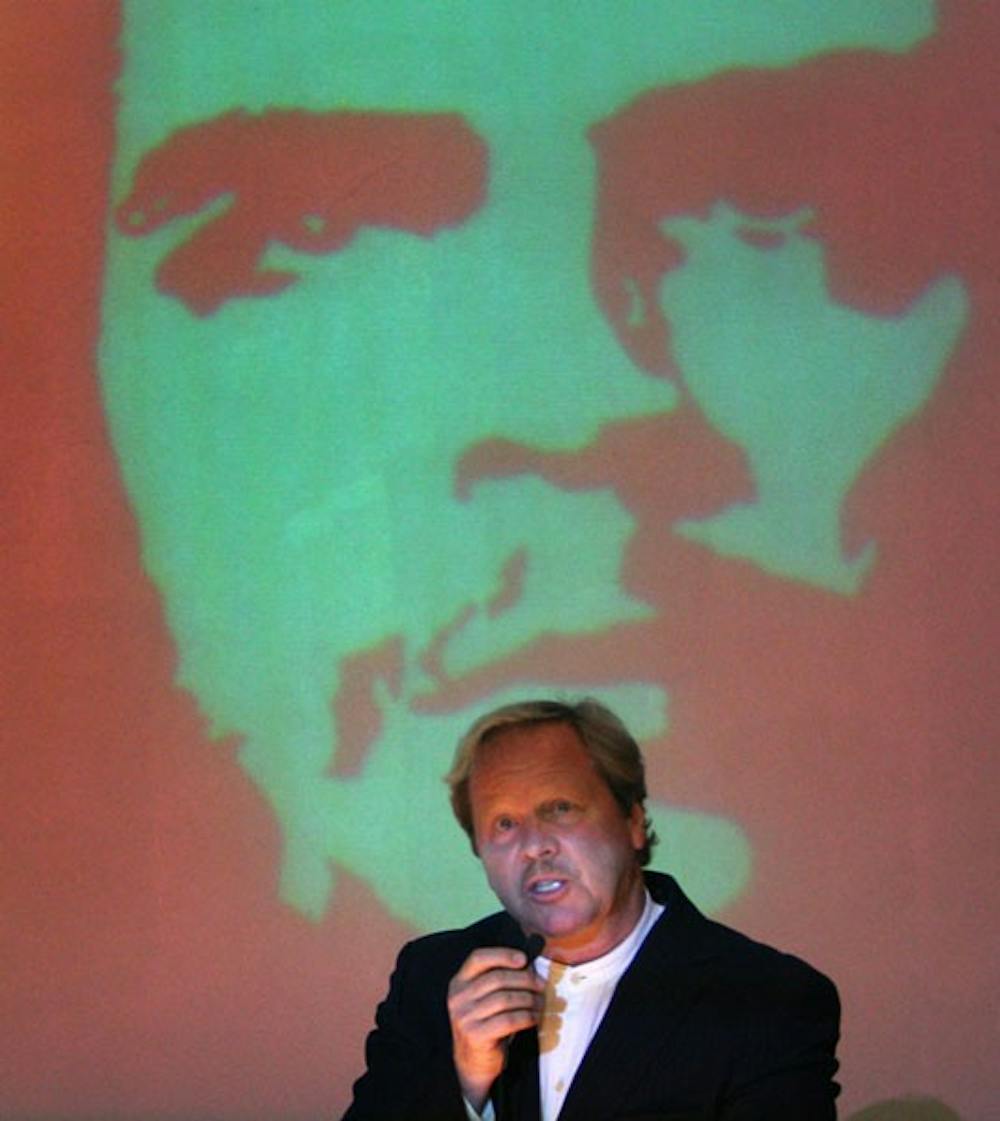After having to repeatedly change his camera lens to be able to see Che Guevara through his viewfinder, Cuban photographer Alberto Korda was so startled by the leader’s expression that he physically stepped back as he hit the shutter.
That expression Korda captured has been digitized, painted, silk screened and tattooed into 20th century pop culture and is the most often reproduced photograph in history, said art historian, collector and UNC alumnus David Craven in his talk about Cuban art Sunday in Hanes Art Center.
Craven spoke about what made that iconic photograph and other politician portraits successful, as well as the Cuban posters from the ’60s and ’70s during the Cuban Revolution.
Cuban posters from the ’60s and ’70s donated by Craven, which include three variations of the Guevara portrait, are on display at the Ackland Art Museum through Dec. 6.
Cuban cinema and art produced during the revolution pose problems that the audience must solve.
At that time, the art shifted from instructive to conversation-provoking, which was the main focus of Craven’s talk, “Revolutionary Art or a Revolution in Art?”
The art portrays the politics of the time as loose and lively, compared to the controlling aspects many Western viewers expected to see in the works, he said.
Politician portraits are always about more than the politician. They also convey the figure’s ideologies, Craven said.
Subtleties such as the subject’s face angle and gaze portray a politician’s ideals.
Guevara’s portrait is powerful because it ennobles, enables and empowers without suggesting a specific action from the viewer, Craven said.
Encouraging critical thinking from the viewer and not using visual propaganda was a common theme Craven saw in Cuban posters.
“One of the great things about Cuban cinema is there isn’t a happy ending,” Craven said.
Cuban art poses a problem that the audience must solve. It’s about what you bring to the image, he said.
The posters used minimalism and pop art to both celebrate the revolution and point out its weaknesses.
Strong simple images represented complex ethical ideals in movie posters.
“I can hardly believe movie posters are so remarkable there and so mundane here,” said Michael Caplow, an audience member and professor of biochemistry and biophysics. “For a less developed country, they have a far greater aesthetic sense.”
Craven’s talk kicks off the Latin American Film Festival Sunday to Nov. 22, which includes multiple lectures and screenings across the Piedmont area, including Greensboro, Raleigh and Durham.
Contact the Arts Editor at artsdesk@unc.edu.
Latin American Film festival kicks off with talk on Cuban art

11-2-cubanfilm-AC.jpg



